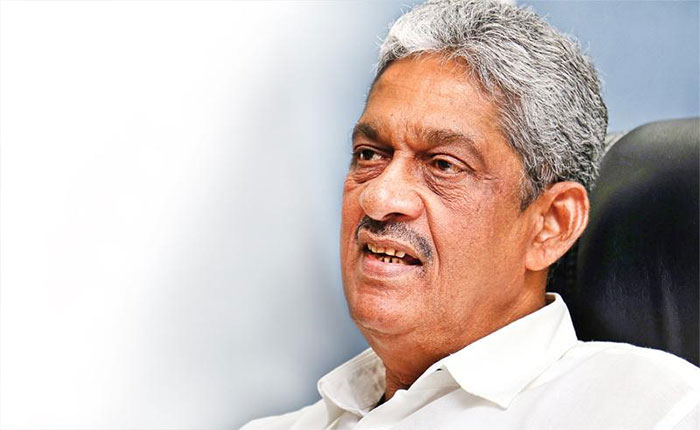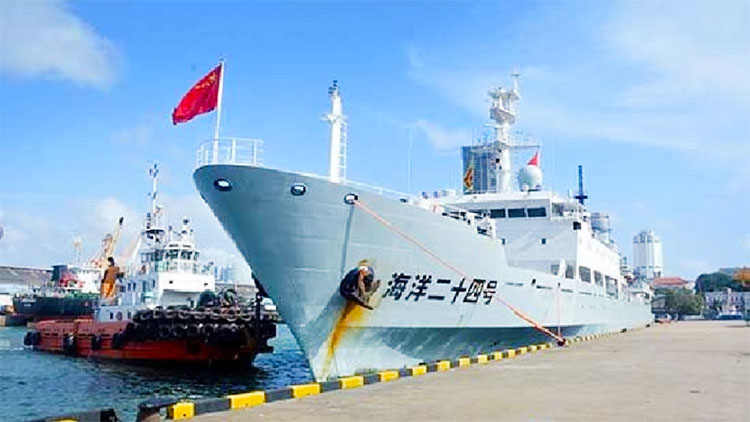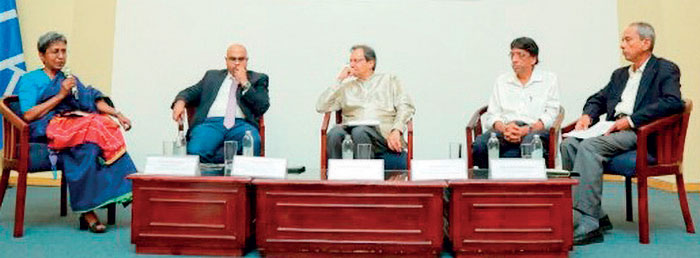SPECIAL REPORT : Part 485
By Shamindra Ferdinando
Justice Minister Dr. Wijeyadasa Rajapakse, PC, declared in Parliament that the winners of LPL (Lanka Premier League) 2023 B-Love Kandy had been sponsored by an enterprise that was banned in the country.
The statement was made in Parliament on 24th August. The one-time President of the Bar Association found fault with SLC (Sri Lanka Cricket) for involving B-Love Network banned here over promoting cryptocurrency.
Unfortunately, by the time the Justice Minister made the declaration President Ranil Wickremesinghe had attended the final of the LPL 2023 at the R. Premadasa Stadium on Sunday (20 Aug.). The President was accompanied by Tourism and Lands Minister Harin Fernando and Senior Advisor on National Security Sagala Ratnayake.
Among those present were senior SLC officials, including President of the Board Shammi Silva, under investigation by the National Audit Office (NAO) over extravagant spending of over Rs 67 million by the SLC for its officials, family members and friends to watch the T20 World Cup tournament played in Australia (Oct. 09-Nov. 13, 2022) and a spate of other allegations.
In the absence of Wanindu Hasaranga, Angelo Mathews led B-Love Kandy to victory over Dambulla Aura, led by Kusal Mendis.
Dr. Rajapakse told The Island that he firmly stood by what he said in Parliament regarding the LPL being a gambling den. All those who had been involved in gambling/betting, as well as promoting cryptocurrency, but accommodated in LPL, were named in Parliament, and it would be the responsibility of the powers that be to take tangible measures against the SLC, the one-time Chairman of the Committee on Public Enterprises (COPE) stressed.
“I was also invited to witness the final but didn’t attend for obvious reasons,” Minister Rajapakse said, adding that “the LPL 2023 should be thoroughly investigated, particularly against the backdrop of the NAO investigation.” The Minister recalled the SLC fared very badly before the parliamentary watchdog committee over a period of time.
However, to be fair by the sponsor, it would be pertinent to mention that Kamal Faridi, the CEO of B-Love Kandy, in an exclusive interview with Ada Derana, posted on 24 July, 2023, quite clearly referred to their role in promoting cryptocurrency.
When asked to describe the B-Love network, Faridi declared: “B-Love Network is a community of people who hold crypto coins. They are one of the main sponsors of the Kandy team and are passionate about sports and cricket.”
Faridi said that they secured the franchise of the Kandy team for a period of 10 years. The top spokesperson is on record as having said that they bought the most expensive team in the LPL without negotiations. Financier Omar Khan is the owner of B-Love Kandy, formerly Kandy Falcons, Kandy Warriors and Kandy Tuskers. B-Love Kandy is coached by legendary Pakistan cricketer Javed Miandad whereas other big names included Wasim Akram.
The Justice Minister said that the SLC owed an explanation. Sports Minister Roshan Ranasinghe couldn’t absolve himself of responsibility by simply declaring that he was not consulted by the SLC. The Minister should inquire into this matter without further delay. The Central Bank and the Monetary Board, too, should look into the issues at hand as a bankrupt country couldn’t continue to flout laws of the land.
It must be noted that the Central Bank daylight robberies that were staged as far back as 2015/16 have yet to be resolved and one of the chief architects of that robbery continues to be shielded by Singapore, even though he is a top fugitive here, but those at the highest echelons of the present regime continue to run to that city state at the drop of a hat for “consultations”. Mind you the same city state also tried to dump all its garbage here during that notorious Yahapalana regime. And there wasn’t a hum from our NGO quislings.
The disclosure of the SLC’s alliance with such enterprises would definitely attract the attention of the International Cricket Council (ICC), the Justice Minister stressed, pointing out that in terms of the recently passed Anti-Corruption law the SLC matter could be dealt with.
Lawmaker Rajapakse made a devastating attack on the SLC during the debate on NAO’s draft report on the 2022 tour of Australia. Interestingly, in spite of a prohibition order obtained from the Colombo District Court by SLC against SJB lawmaker Hesha Withana discussing the issue, the Opposition MP, however, flayed the cricket administration, using his parliamentary privilege. The Ratnapura District MP repeated allegations, based on the NAO report, regardless of the court directive, but the position taken by the Justice Minister astonished all. Such accusations couldn’t have been at a worse time for the SLC, under heavy fire over waste, corruption, irregularities and mismanagement at a time the country is experiencing severe economic difficulties.
A major controversy erupted during the opening ceremony of the LPL 2023 tournament when versatile singer Umara Sinhawansha distorted the national anthem. How much was Ms. Sinhawansha paid by SLC for her rendition of the national anthem? That, too, would come up for discussion once the LPL 2023 is subjected to a state audit.
However, the Justice Minister’s allegations are even far more damaging than the NAO report revelations as the former come under the purview of the Anti-Corruption Act.
Repealing of a time-tested Act
Who wanted to repeal Exchange Control Act No 24 of 1953? Did repealing that time-tested Act contribute to the collapse of the national economy in 2022? Dr. Wijeyadasa Rajapakse’s repeated accusations regarding the repealing of the 1953 Exchange Control Act should be thoroughly investigated as the President’s Counsel, too, had been a member of the Yahapalana government that enacted Foreign Exchange Act No 12 of 2017 at the expense of the 1953 law. The Justice Minister, in an interview with Hiru, a week ago, claimed that taking advantage of the law exporters have parked as much as USD 100 bn abroad while the country continued to struggle to meet its basic commitments.
It would be pertinent to discuss the circumstances under which the Yahapalana administration enacted the Foreign Exchange Act No 12 of 2017. In May 2017, the then President Maithripala Sirisena and Premier Ranil Wickremesinghe agreed on a mini-Cabinet reshuffle in the wake of two Treasury bond scams perpetrated in February 2015 and March 2016. Nine Cabinet Ministers and one State Minister were re-allocated fresh ministerial portfolios on the morning of 22 May, 2017. The most important and far- reaching decision in the reshuffle was the key exchange of portfolios between Finance Minister Ravi Karunanayake and Foreign Affairs Minister Mangala Samaraweera. Karunanayake received Foreign Affairs while Samaraweera got the Finance portfolio. In addition to Finance, Mangala Samaraweera received the Media Ministry. Within four months, Karunanayake resigned over corruption charges in respect of the bond scams.
It was the late Mangala Samaraweera who served as the Finance Minister when the Yahapalana government enacted the now controversial Finance Act of 2017 on 25 July, 2017. Of the 225-member Parliament, 94 voted for the Bill presented by Premier Ranil Wickremesinghe, whereas 18 voted against. A staggering 113 MPs skipped the vote. Among those who voted for the Bill were current members of the SJB. The SJB was formed by a breakaway faction of the UNP, in early 2020. Kabir Hashim and Dr. Harsha de Silva, members of the SJB economic team, were among those who voted for the Bill. Karu Jayasuriya, in his capacity as the Speaker, endorsed the Act.
In addition to safeguarding those who parked money overseas, the new law facilitated money laundering operations. In the 1953 Act section 23 regularized the foreign exchange transfers. That particular section dealt with those who sent money overseas but didn’t receive goods in terms of that transaction. But, the 2017 law conveniently omitted that. The writer intends to submit a RTI query to Parliament seeking the list of MPs who voted for the 2017 Foreign Exchange Act.
The UNP and SJB owed an explanation regarding the allegations made by Justice Minister Rajapakse. Dr. Rajapakse, too, should explain why he waited so long to raise his voice against the 2017 Exchange Control Act. The then Premier Wickremesinghe who presented that damaging Bill is the President now. The UNP leader also holds several other portfolios, including Finance and Defence. At the time the new law was brought in, Dr. Indrajith Coomaraswamy served as the Governor of the Central Bank, though the government didn’t consult him as regards the new law.
Several months ago, rebel SLPP lawmakers, Vasudeva Nanayakkara, Wimal Weerawansa and Udaya Gammanpila raised the grave injustice caused to the country by the highly questionable Act passed in 2017. Dr. Rajapakse, too, discussed this matter, both in and outside Parliament, several months ago. But, so far, the government hasn’t responded to the accusations pertaining to the 2017 Foreign Exchange Act. In responding to The Island query, Dr. Rajapakse said that he offered assistance to the relevant authorities to amend the law but didn’t receive the anticipated response. The bottom line is that the Parliament enacted an Act at the expense of overall national security and stability.
Shocking revelation at PSC
The Parliamentary Select Committee, assigned to investigate the 2019 Easter Sunday carnage, raised the Foreign Exchange Control Act of 2017, with the Central Bank, on 26 July, 2019. The CBSL team comprised the Governor of the Central Bank, Indrajit Coomaraswamy, Director of Financial Intelligence Unit, D.M. Rupasinghe, and Director of the Department of Supervision of Non-Bank Financial Institutions R.R. Jayaratne. Rupasinghe testified in-camera on a request made by Dr. Coomaraswamy. Dr. Coomaraswamy succeeded disgraced Singaporean, Arjuna Mahendran, in early July, 2016.
The CBSL set the record straight in response to then Power, Energy and Business Development Minister Ravi Karunanayake’s challenge. PSC member Karunanayake strongly countered CBSL condemnation of the Foreign Exchange Act of 2017. Commenting on funds received by the Batticaloa Campus Limited and the Heera Foundation from Saudi Arabia on seven and 15 occasions, respectively, the CBSL stressed that the new Act weakened the CBSL regulatory role, vis-a-vis illegal transactions. Those institutions were under investigations as regards the 2019 Easter Sunday attacks due to their links with the National Thowheed Jamaat (NTJ), blamed for those devastating attacks.
The PSC proceedings showed how politicians caused irreparable damage through unilateral actions. Ravi Karunanayake, who had been again brought back to the Cabinet, after the failed constitutional coup, in late 2018, clashed with the Central Bank over the enactment of the new law. The CBSL took an unwavering stand that the new law impeded its regulatory powers thereby facilitating illegal transactions.
Ravi Karunanayake (RK): Where does it say such transactions cannot be inquired into in terms of the new Act?
CBSL: In accordance with 2017 Exchange Control Act, Section 30, action cannot be taken.
RK: You prepared that Act. Why are you pretending as if you don’t know anything about it? CBSL amended it several times and sent it back.
Director of the Department of Supervision of Non-Bank Financial Institutions R.R. Jayaratne could have faced a ministerial onslaught if not for Dr. Coomaraswamy’s swift intervention. Had Dr. Coomaraswamy opted to remain silent, Jayaratne, probably would have had to suffer in silence unable to talk back to a powerful Minister
Dr. Coomaraswamy: No Sir. The Act actually was not drafted by us.
RK: Why not?
Dr. Coomaraswamy: No Sir. It was done outside. We were actually very upset about it. We were not included. That was drafted without the CBSL being involved. We were asked to comment on it
JVP MP Dr. Nalinda Jayatissa: If the Batticaloa Campus last received money in 2017, Hizbullah was aware of the new Act being drafted.
CBSL: Yes.
Nalinda Jayatissa: It could have happened.
CBSL: Present Act does not at least interpret what it meant by wrong. Unauthorized money transactions were taking place all over the country. Foreign currencies are kept illegally. Transactions do not come into the official banking system, not even one USD.
The exchange between Ravi Karunanayake and the CBSL erupted when lawmaker Ashu Marasinghe sought a clarification as regards the difference in the current and the previous Exchange Control Acts. The then Chairman of the Public Finance Committee M.A. Sumanthiran remained silent during the exchange between Ravi Karunanayake and the CBSL.
The circumstances of the Exchange Control Act that had been introduced was disputed by no less a person than the CBSL Governor. It would be pertinent to recall the advice given by Dr. Coomaraswamy to the electorate late 2018. Dr. Coomaraswamy issued the advice before President Maithripala Sirisena dissolved Parliament at midnight on 09 Nov., 2018, following the sacking of Premier Ranil Wickremesinghe.
Dr. Coomaraswamy’s statement, made before the Presidential Commission of Inquiry (PCol) on irregularities at SriLankan Airlines, SriLankan Catering and Mihin Lanka is relevant as Sri Lanka struggles to navigate difficulties. Dr. Coomaraswamy told the PCol that the country was facing a non-virtuous cycle of debt and it was a very fragile situation which could even lead to a debt crisis. “Of course my colleagues in the Debt Department have plans and capability to manage it. But it’s the duty of every citizen to act responsibly as regards the government policy,” he told the PCol. Dr. Coomaraswamy emphasized that people should elect MPs who were prudent enough to handle fiscal and monetary matters of the country. “I am not referring to any government, but it’s been the case ever since independence.”
In spite of knowing that the Exchange Control Act of 2017 is seriously flawed, political parties have done nothing so far to bring forth remedial measures, especially by those now wielding power. Perhaps the Committee on Public Finance should inquire into this. The Parliament should be ashamed of its failure to address this issue.
Lapses on the part of Parliament
The pathetic failure on the part of Parliament to deal with gold smuggling MP Ali Sabry Raheem (Puttalam District MP representing the Muslim National Alliance), for over five months, underscored the crisis the country is experiencing. Many an eyebrow was raised when the disgraced MP Raheem attended a meeting, chaired by President Ranil Wickremesinghe at the Presidential Secretariat,where ways and means of strengthening the gem and jewellery industry was discussed. Raheem was there as a member of the Sectoral Monitoring Committee on Environment, Natural Resources and Sustainable Development.
The Parliament owed an explanation why it couldn’t take action against the offending MP. The All Ceylon Makkal Congress (ACMC) that fielded Raheem on the MNA ticket, too, should be held responsible. The first time entrant, who was fined much less than any other offender after being caught with 3.3 kgs of gold and 91 smartphones valued at Rs. 74 mn and Rs. 4.2 mn, respectively, in late March this year, caused quite a stir when he voted in Parliament immediately after the disgraceful incident.
The President’s Office obviously failed in its basic responsibilities by inviting the culprit for a meeting with the President. But, the President’s appearance at the LPL final stressed that the ongoing controversy over massive financial irregularities didn’t matter at all. The question that must be popping up in the heads of most Lankans is are we being governed by baby faced bandits. Political party system continues to emphasize that regardless of whatever transgression, alleged wrongdoers can continue with impunity. There cannot be a better example to prove the shoddy way Parliament addressed issues of utmost importance than the gold smuggling’s MP’s affair.
The recent call by the Leader of the House Susil Premjayantha to summon MP Raheem before the parliamentary ethics committee, over five months after the incident at the BIA, must be nothing but another bid to side-step the issue.

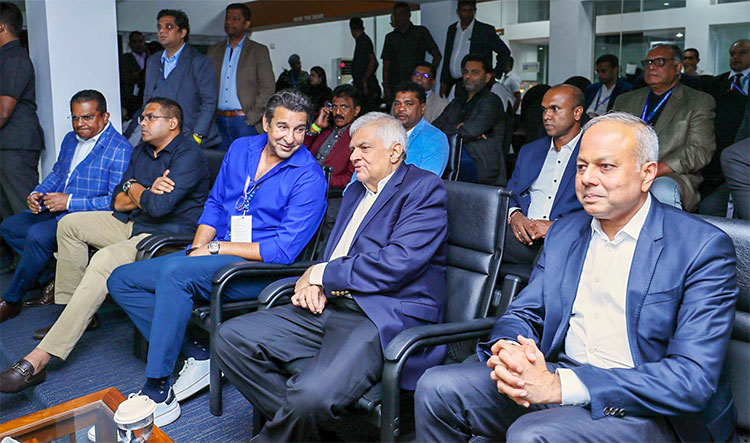
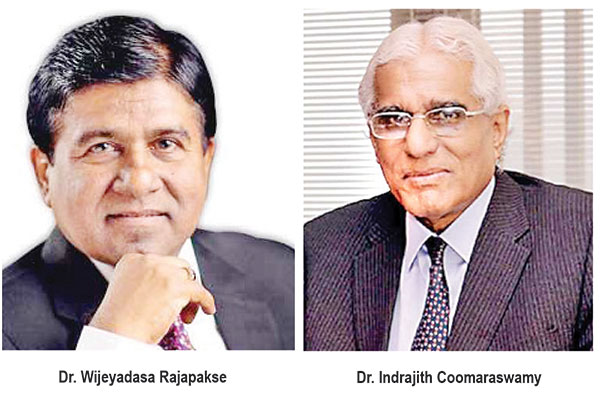 The Parliamentary Select Committee, assigned to investigate the 2019 Easter Sunday carnage, raised the Foreign Exchange Control Act of 2017, with the Central Bank, on 26 July, 2019. The CBSL team comprised the Governor of the Central Bank, Indrajit Coomaraswamy, Director of Financial Intelligence Unit, D.M. Rupasinghe, and Director of the Department of Supervision of Non-Bank Financial Institutions R.R. Jayaratne. Rupasinghe testified in-camera on a request made by Dr. Coomaraswamy. Dr. Coomaraswamy succeeded disgraced Singaporean, Arjuna Mahendran, in early July, 2016.
The Parliamentary Select Committee, assigned to investigate the 2019 Easter Sunday carnage, raised the Foreign Exchange Control Act of 2017, with the Central Bank, on 26 July, 2019. The CBSL team comprised the Governor of the Central Bank, Indrajit Coomaraswamy, Director of Financial Intelligence Unit, D.M. Rupasinghe, and Director of the Department of Supervision of Non-Bank Financial Institutions R.R. Jayaratne. Rupasinghe testified in-camera on a request made by Dr. Coomaraswamy. Dr. Coomaraswamy succeeded disgraced Singaporean, Arjuna Mahendran, in early July, 2016.